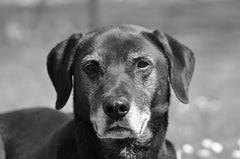
When you see a Border Collie the first thing that comes to your mind is likely a vision of them herding a large group of sheep across a wide-open pasture. This vision isn't entirely inaccurate, as this is what this breed was historically bred to do, among other duties. Nowadays they are often found playing the role of loving family pets. Keeping a collie dog as a family pet is a great idea, although, there are some dog grooming needs that you will need to be prepared to take on with your new pet. Border Collies have a lot of furs that will need upkeep by you and the family.
Why is it Important to Groom Your Herding Dog?

Most herding dog breeds have a long and thick coat of fur, that requires a certain level of upkeep by their owner, and this is why. First of all, long and thick fur coats typically mean you should be prepared to find fur on every square inch of your home.
This is because herding dogs like the border collie do tend to shed. However, by keeping up with grooming needs you can cut back on a lot of this shedding activity.
The Border Collie size isn’t very large, so there isn’t too much surface area you will need to cover, but it's still important to inspect all of their fur and skin when grooming. Another benefit of regular grooming is that you will be able to keep an eye out for anything concerning that the vet would need to know about.
An issue in particular that border collies are prone to facing is dry and itchy skin. Part of caring for your dog is grooming them regularly can help mediate this issue as well as let you know then it’s something that they have been struggling with.
How to Groom Your Herding Dog

There are a few steps that the highly intelligent dog Border Collie and other breeds of herding dog owners make when grooming their canines. Some will spray their dog with a detangling spray first, rather than brushing dry fur. This helps to minimize breakage of the fur when brushing through it.
Regular brushing is especially good for their fur and skin health because it helps to distribute their natural oils through their fur. Firm yet gentle brushing also benefits the skin's circulation by stimulating increased blood flow. Regular brushing also helps to reduce shedding of course. Which is beneficial to you and your family.
If you’re unsure of how to care for your Border Collie's dry and itchy skin, your vet can always give you instructions on which shampoos and products would be best for them, as well as how often grooming should take place.
Ear cleaning and examining is also an important step in the grooming process for your herding dog. They don't need their ears cleaned on a regular basis unless they are getting a lot of buildup in them. Each time you groom and inspect your dog, from the time that they are a puppy, take a peek in their ears to make sure everything is looking okay in there.
How Often Should Grooming Take Place?

How often you should groom your border collie or other breeds of herding dog depends on whether they are a working dog or a family pet. Border collies who are kept as working dogs on a farm will need more frequent grooming than just a household pet will. Working Collies generally need daily brushing to remove any dirt or debris that they picked up while working outside.
Border Collies who are kept as a pet need regular grooming but not frequent. Because they are prone to developing dry and itchy skin, infrequent bathing may be best, but that can also depend on your dog and their skin’s sensitivity. Herding Dog breeds tend to shed two seasons of the year. At these times they will need more frequent brushing to keep up with all of the loose hair.
Is there a “Shedding Season”? If So, When is it?

Yes, there is in-fact, a shedding season. This applies to most dog breeds who shed, but the Border Collie and other herding dogs breed both experiences this biannual shedding. Generally, the shedding season occurs in the Spring and Fall but this can vary from one dog to the next. This is also affected by the climate of the area where you and your dog live.
If you're looking for a dog that's just as adorable and smart as a Border Collie but don't want to deal with all the shedding, here are small family dogs that don't shed as much.
Conclusion
If you plan to own or adopt a Border Collie or other breed of herding dog, their grooming needs are important and definitely need to be kept up with. Herding dogs typically have long and thick coats of fur. Brushing them regularly is important to keep up with their hygiene as well as to inspect for any issues. Border Collies are generally healthy dogs but do sometimes have trouble with dry and itchy skin.
Border Collies make great working dogs for farms as well as amazing house pets for families. However, the grooming needs will vary from one role to the next. Working herding dogs will need more attention to their grooming than household pets will since they tend to collect more dirt and debris while working. Each dog is unique in general, so the grooming needs may vary from one to the next.
How big do border collies get?
How long do border collies live?
Are border collies good with kids?
Check out our blog and follow me on LinkedIn to stay up-to-date!




